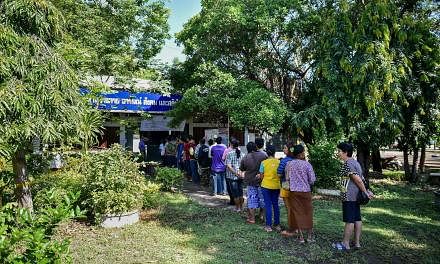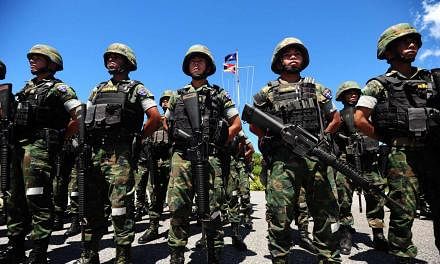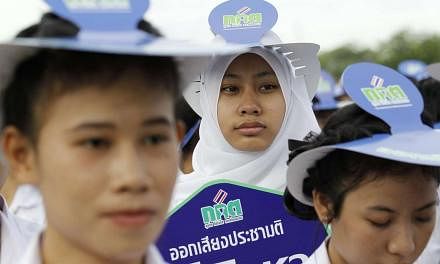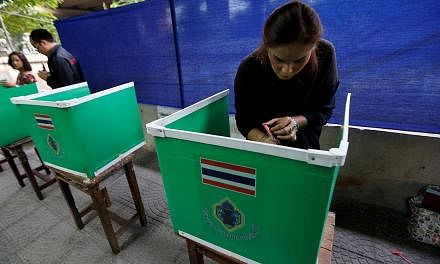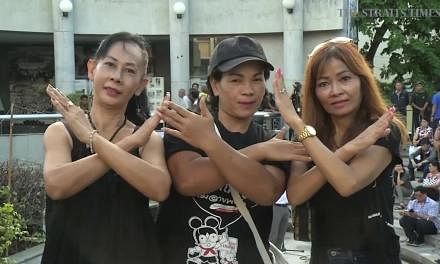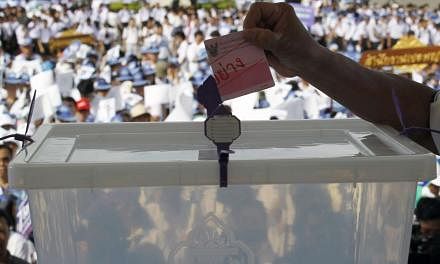Thai Premier Prayut Chan-o-cha has asked Thai citizens to set aside their differences and move on while promising an election by the end of next year if conditions remain "stable and peaceful".
In a televised announcement shortly after the Election Commission confirmed a 61.35 per cent approval of the military-backed draft Constitution, he said the referendum results had "shown the world what Thai people desire and think about their country".
"I am deeply appreciative of your trust and confidence in the (National Council for Peace and Order) and the government," he said, referring to the name of the ruling junta, which has controlled the country since the military coup in May 2014.
But he warned that "those who remain dissatisfied with this state of peacefulness, who persist in damaging the country... through the use of online media and information sent from abroad" will face the wrath of the law.
Asean's second-largest economy is no stranger to political tumult, with the last two popularly elected governments upended by military coups supported by sections of the deeply divided society. Sunday's plebiscite was the second in its history. Like the first held in 2007 after a coup, it was used to seek public endorsement of a Constitution drawn up under military watch.
The Constitution endorsed on Sunday, like the 2007 one, shrank the power of elected parliamentarians vis a vis appointed ones. It includes clauses which institutionalise military oversight of the future elected government. The ruling junta would get to choose almost all 250 members of the Senate, which would be given more powers of scrutiny. With the endorsement of 58.07 per cent of voters at the referendum, the Senate would now also be able to join the elected Lower House to pick a prime minister - who need not be an elected lawmaker. Future administrations would be constrained in their policy options as they risk being impeached if they do not stick to a long-term "national strategy plan".
The draft Charter will be the country's 20th once promulgated.
Turnout for Sunday's referendum, according to the Election Commission, was 59.4 per cent.
In the lead-up to the vote, strict laws against the "distortion" of the draft Charter - that put violators under the threat of 10 years' jail - muted public debate. According to data compiled by the legal aid group Thai Lawyers for Human Rights, at least 195 people have been charged with violating the Referendum Act, the ban against political gatherings, as well as other rules, for their activities related to the referendum.
General Prayut yesterday played down observers' concerns about the repression. "Even though there are those who distort the truth by saying that some rights have been curtailed, it is evident that unless you are breaking the laws or trying to create unruliness, you are free to express yourselves and criticise the government, as has been occurring on a regular basis." The former army chief has been non-committal about chances of him assuming the prime minister's post.
Earlier this week, a member of the now defunct junta-appointed reform council, Mr Paiboon Nititawan, announced plans to form a party to contest in the next elections. It would be open to retired military officers, he said.

